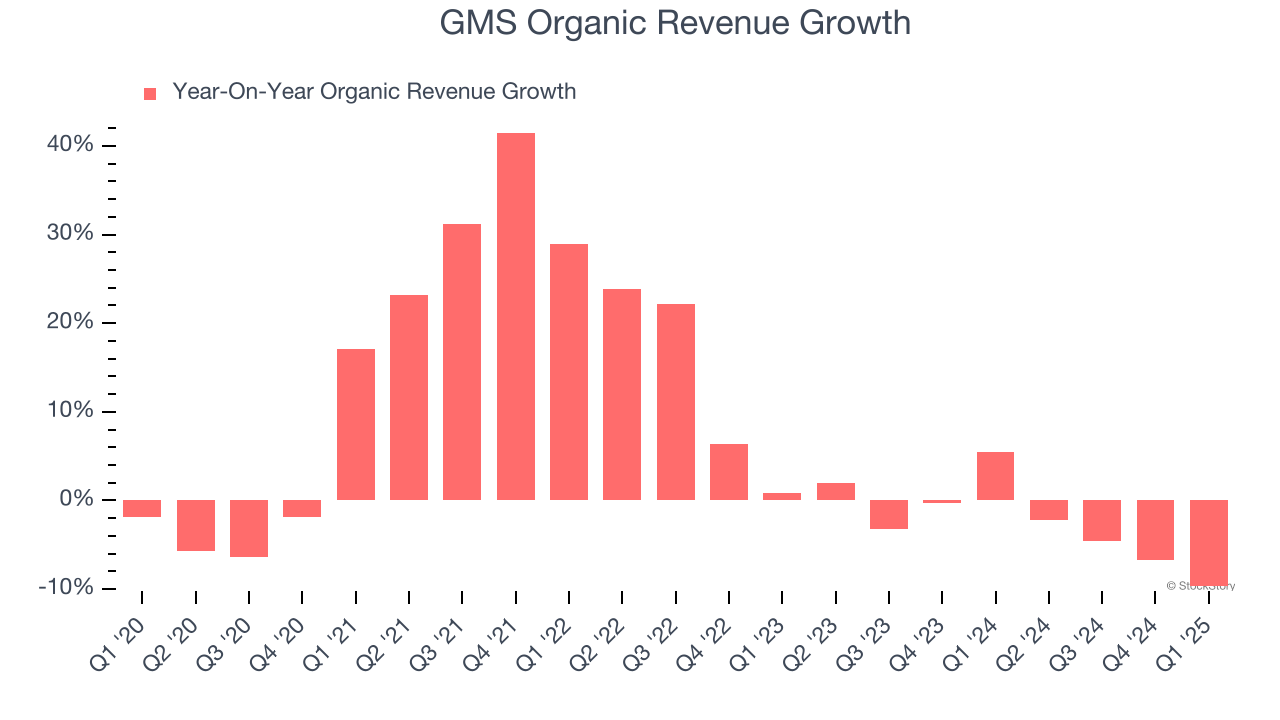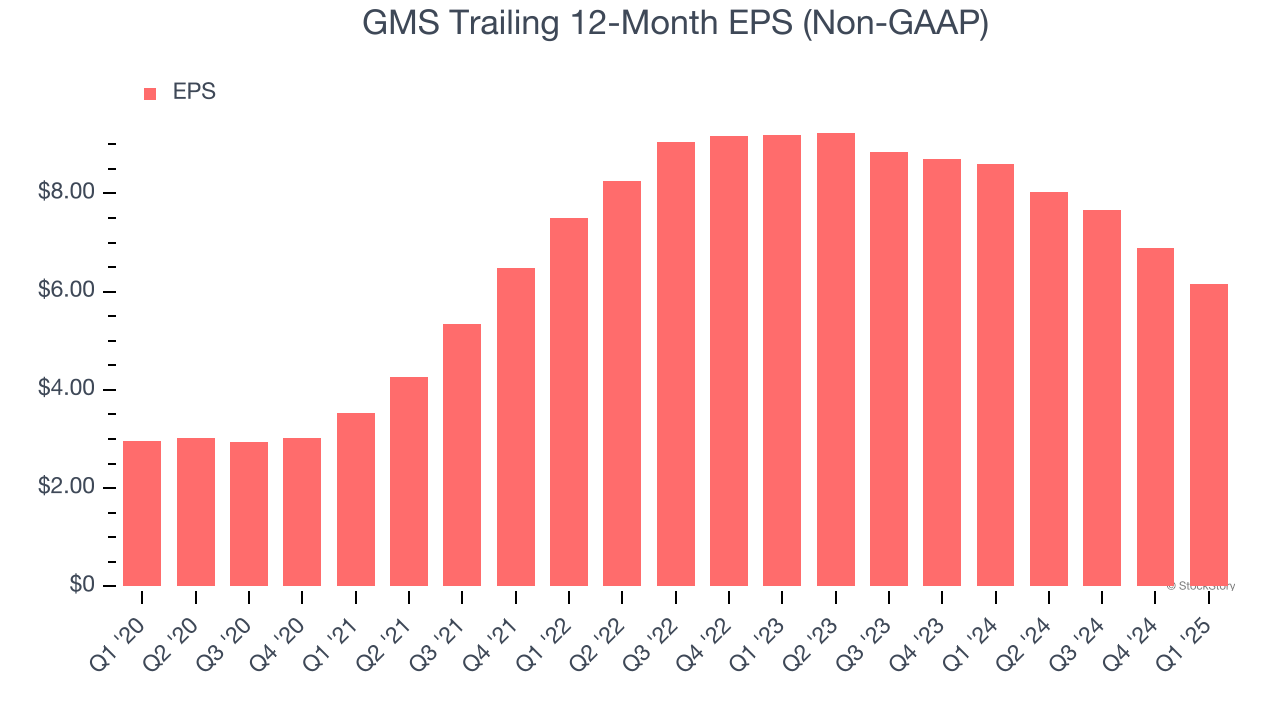
GMS currently trades at $109.47 and has been a dream stock for shareholders. It’s returned 324% since August 2020, blowing past the S&P 500’s 89% gain. The company has also beaten the index over the past six months as its stock price is up 34.3% thanks to its solid quarterly results.
Is now the time to buy GMS, or should you be careful about including it in your portfolio? See what our analysts have to say in our full research report, it’s free.
Why Is GMS Not Exciting?
Despite the momentum, we're cautious about GMS. Here are three reasons why there are better opportunities than GMS and a stock we'd rather own.
1. Core Business Falling Behind as Demand Declines
In addition to reported revenue, organic revenue is a useful data point for analyzing Building Material Distributors companies. This metric gives visibility into GMS’s core business because it excludes one-time events such as mergers, acquisitions, and divestitures along with foreign currency fluctuations - non-fundamental factors that can manipulate the income statement.
Over the last two years, GMS’s organic revenue averaged 2.4% year-on-year declines. This performance was underwhelming and implies it may need to improve its products, pricing, or go-to-market strategy. It also suggests GMS might have to lean into acquisitions to grow, which isn’t ideal because M&A can be expensive and risky (integrations often disrupt focus). 
2. Projected Revenue Growth Shows Limited Upside
Forecasted revenues by Wall Street analysts signal a company’s potential. Predictions may not always be accurate, but accelerating growth typically boosts valuation multiples and stock prices while slowing growth does the opposite.
Over the next 12 months, sell-side analysts expect GMS’s revenue to stall, a slight deceleration versus its 11.2% annualized growth for the past five years. This projection doesn't excite us and suggests its products and services will see some demand headwinds.
3. EPS Took a Dip Over the Last Two Years
While long-term earnings trends give us the big picture, we also track EPS over a shorter period because it can provide insight into an emerging theme or development for the business.
Sadly for GMS, its EPS declined by 18.1% annually over the last two years while its revenue grew by 1.7%. This tells us the company became less profitable on a per-share basis as it expanded.

Final Judgment
GMS isn’t a terrible business, but it doesn’t pass our quality test. With its shares outperforming the market lately, the stock trades at 17.8× forward P/E (or $109.47 per share). While this valuation is fair, the upside isn’t great compared to the potential downside. We're fairly confident there are better stocks to buy right now. We’d recommend looking at a dominant Aerospace business that has perfected its M&A strategy.
Stocks We Like More Than GMS
Trump’s April 2025 tariff bombshell triggered a massive market selloff, but stocks have since staged an impressive recovery, leaving those who panic sold on the sidelines.
Take advantage of the rebound by checking out our Top 6 Stocks for this week. This is a curated list of our High Quality stocks that have generated a market-beating return of 183% over the last five years (as of March 31st 2025).
Stocks that made our list in 2020 include now familiar names such as Nvidia (+1,545% between March 2020 and March 2025) as well as under-the-radar businesses like the once-small-cap company Comfort Systems (+782% five-year return). Find your next big winner with StockStory today.
StockStory is growing and hiring equity analyst and marketing roles. Are you a 0 to 1 builder passionate about the markets and AI? See the open roles here.






